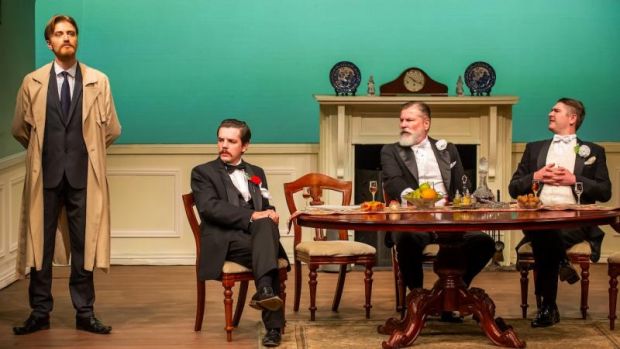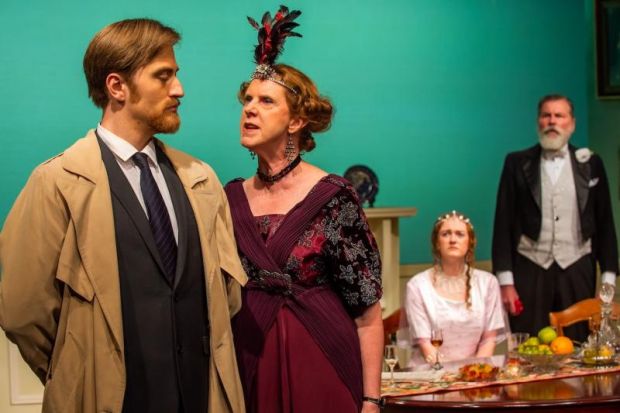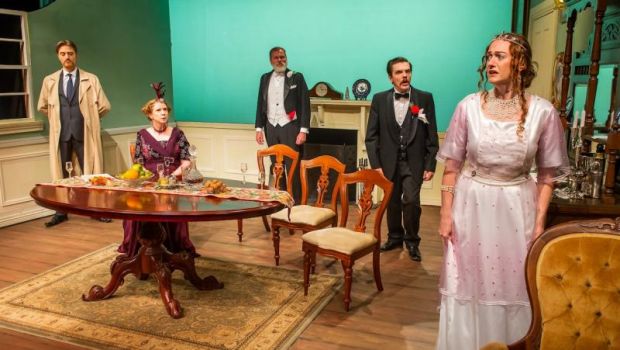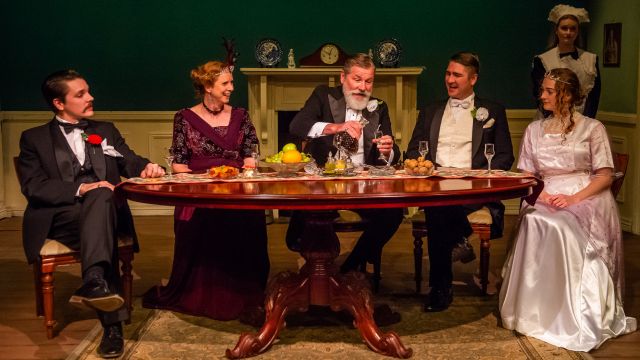An Inspector Calls
An Inspector Calls’ enduring relevance lies in its exploration of class divisions, ethical dilemmas, and the ramifications of unchecked privilege. It is as relevant and conversational today as ever. We may be peering into a living room from long ago, but who do we see inside?
Each character's moral complexity contributes to the narrative, prompting such reflection on personal integrity, social consciousness, and the collective impact of individual choices. This enduring masterpiece resonates across time and societal contexts.

Set in 1912, the play revolves around the Birling family and the unexpected visit of Inspector Goole, who unravels a series of unsettling revelations.
The direction of the play is well crafted by Director Dave Went, seamlessly guiding the audience through the intricate web of social intrigue and moral dilemmas. Went adeptly utilises staging and blocking to underscore the tension and conflict within the Birling family, creating a palpable sense of unease and suspense. The narrative's pacing maintains a gripping momentum, with some unexpected comical moments drawing viewers into the unfolding drama and unearthing the characters' hidden motivations.

Steve Rowe, as the patriarch of the family, is a self-absorbed and ambitious businessman reflecting the upper-class attitudes of the time, emphasising material success and dismissing the concerns of the lower classes. His lack of remorse for his actions and a desire to maintain his social status at any cost make him particularly unlikeable.
Arthur's wife, played by Leigh Scanlon, embodies the ideals of a traditional upper-class woman. Scanlon captures the judgmental and elitist nature of her social class, exhibiting a callous disregard for the struggles of the less fortunate.
Their daughter, Sheila, is beautifully portrayed by Caitlin Clancy. Initially naïve and frivolous, Clancy expertly manages Shelia's transformation as she realises the impact of her actions on others.

Eric, the younger son, played by Mitchel Doran grapples with inner turmoil and a sense of alienation within his family. At the same time, Jem Rowe's portrayal of Sheila's fiancé Gerald captures his suave exterior while delving into the character's emotional complexity and moral dilemmas.
Although it is an ensemble piece, Thomas Southwell as Inspector Goole, the enigmatic figure at the centre of the play, stands out. His methodical interrogation of the Birlings and the revelations he brings to light serve as a catalyst for introspection and accountability. He commands the stage with each interaction.
Leone Sharp’s costume design is a visual testament to the character's social status. The period costumes authentically capture the sartorial elegance of the early 20th century. One thing I am curious about - is the choice of an oversized suit without tails for Eric, who doesn't quite fit in the family. Was this a deliberate choice for this character?

The setting, designed by Abby Bishop, is constructed to evoke the luxury and austerity of the Edwardian era, immersing the audience in the Birlings' affluent world. The juxtaposition of the lavish interior with the bleak darkness outside the window where the streetwalkers peer in reinforces the play's underlying themes of class division.
Castle Hill Players deliver another winner in a compelling rendition of J.B. Priestley's timeless masterpiece.
Nicole Smith
Photographer: Chris Lundie
Subscribe to our E-Newsletter, buy our latest print edition or find a Performing Arts book at Book Nook.

